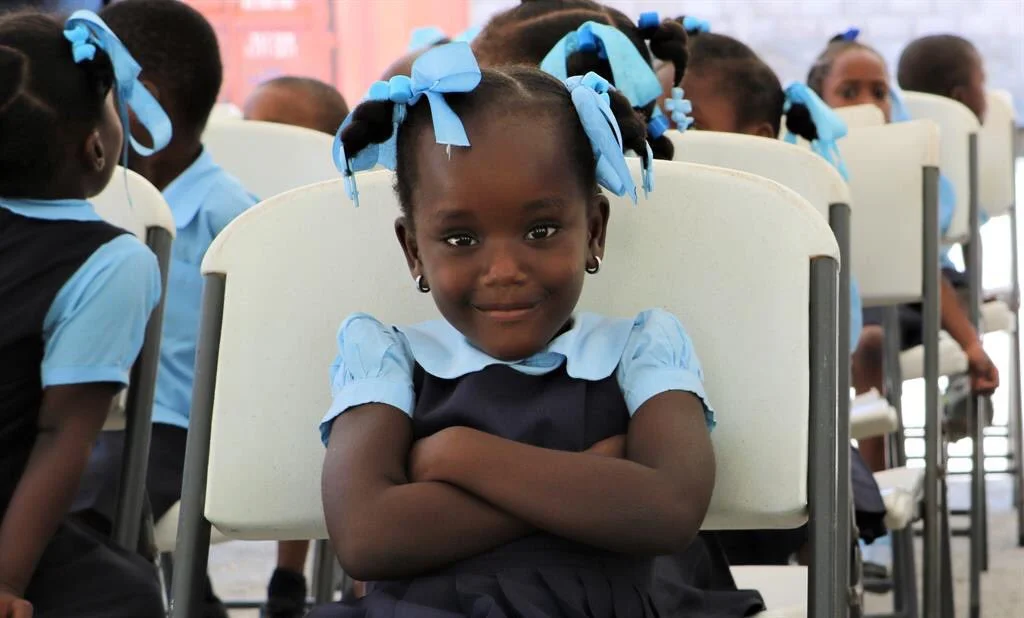Globally, the role of civil society has never been more important than this year, 2015, as the world prepares to implement a new development agenda, agreed by all the world’s Governments. However, for civil society activists and organizations in a range of countries covering every continent, space is shrinking — or even closing. Governments have adopted restrictions that limit the ability of NGOs to work or to receive funding.
As the Secretary-General has said, the hallmark of successful and stable democracies is the presence of a strong and freely operating civil society -- in which Government and civil society work together for common goals for a better future, and at the same time, civil society helps keep Government accountable.
The United Nations Democracy Fund (UNDEF) supports projects that strengthen the voice of civil society, promote human rights, and encourage the participation of all groups in democratic processes. It is the only UN entity that has the word “democracy” in its name; the only UN body with the primary purpose of supporting democracy through empowering civil society; and one of the youngest entities in the UN system.
Since Secretary-General Kofi A. Annan created UNDEF as a UN General Trust Fund in 2005, it has supported more than 600 projects in over 120 countries, with a total disbursement of more than 150 million dollars. These have ranged from supporting civil society efforts for accountability and transparency to building capacity for strengthening good governance and the rule of law. The large majority of UNDEF funds go to local civil society organizations in countries in both the transition and consolidation phases of democratisation. In this way, UNDEF plays a new, distinct and unique role, complementing and enhancing the UN's traditional work with Governments to strengthen democratic governance around the world. It targets the demand side of democracy, rather than the supply side.
UNDEF projects are in seven main areas:
Community Activism
Rule of Law and Human Rights
Tools for Knowledge
Women's Empowerment
Youth Engagement
Media and Freedom of Information
Strengthening Civil Society Capacity for Interaction with Government
UNDEF’s project selection in the Ninth Round of Funding places a deliberate emphasis on youth engagement, with almost 50 per cent of selected projects operating in this field. This reflects the fact that today, one person out of five is between the ages of 15 and 24. Young people have increasing powers to network, connecting on issues that matter – from injustice, discrimination and climate change to human rights and the need for human solidarity. The emphasis also reflects that 2015 was a turning point for the United Nations, as the international community agreed on new sustainable development goals and a new universal and meaningful climate agreement – commitments that those who are young today will have to live with and carry forward.
In 2014, UNDEF received over 2,300 project proposals. Grants average around USD195,000 and applications are subject to a highly rigorous and competitive selection process. The Fund depends entirely on voluntary contributions from Member States. So far, it has been supported by over 40 Governments, who have contributed a cumulative amount of more than 160 million dollars. The biggest donors are the United States and India.
UNDEF is committed to transparency and knowledge sharing. External evaluations of completed projects are available on the UNDEF website.
The following are some examples of UNDEF projects around the world:
Democracy in Action
A School of Democratic Procedures for Self-Governance Bodies in All Regions of Ukraine
In Ukraine, an UNDEF-funded project works to increase the transparency and accountability of local self-governance by introducing parliamentary procedures in the daily work of selected local Councils in all regions of the country, including the East. Under the project, representatives of 24 local authorities, one for each region of Ukraine, attend a School of Democratic Rules and Procedures.
Participants work for the adoption of amendments to the regulations of the relevant local authorities to introduce parliamentary procedures and democratic rules - enabling Councils to broadcast their sessions on the Internet. By bringing together representatives from all the regions of Ukraine, the School of Democratic Rules and Procedures also advances the concept of holding organized inclusive and peaceful political debate. The project is implemented by West Ukrainian Resource Centre.
2. Empowering Indigenous Communities in Bolivia through Basic Legal Identity Documents
In Bolivia, UNDEF funds a project in the La Paz and Oruro departments, to assist in legally and politically empowering indigenous communities. It is doing so by providing them with basic legal identity documents, prerequisites for democratic participation which many of them have lacked in the past; strengthening their knowledge and capacity to participate in democratic processes and exercise their rights; and improving access to basic legal documents and rights for all, through evidence-based advocacy aimed at institutional change. Implemented by Fundacion Microjusticia Bolivia (MJB), the project is also setting up a network of rural facilitators to act as focal points for establishing outlets for legal advice, and run legal campaigns on how to obtain the necessary documentation. Also importantly, the project encourages debate between traditional leaders and government officials by organising networking meetings and a forum.
3. Upholding the Rights of Communities and Miners amid Exploitation of Mineral Resources in the Democratic Republic of Congo
In the Democratic Republic of Congo, an UNDEF-funded project works to uphold economic, social and cultural rights of local communities and traditional miners in relation to the exploitation of mineral resources. The project conducts advocacy for legal reform; dissemination and explanation of legal texts; awareness-raising on rights and obligations among community leaders, judiciary, mine administration officials; support for rights violation victims; organizing of traditional mine diggers; and monitoring of human rights related to the exploitation of natural resources. The project is implemented by the NGO Action pour la Promotion et la Défense des Droits des Personnes Défavorisées.

